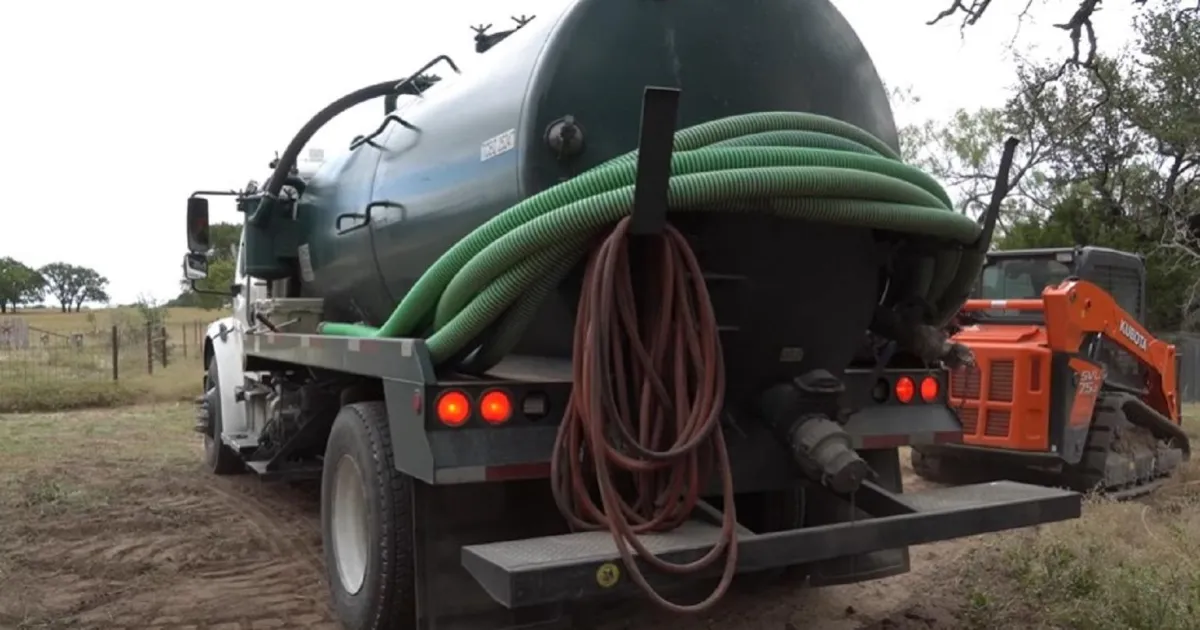Is My Septic Tank Full or Clogged? Uncover the Truth and Fix It Fast!

Uh-oh! Is your toilet backing up? Weird smells in the yard? You might be wondering, "Is my septic tank full or clogged?"
Don't panic! We're here to help you figure it out and get things flowing smoothly again.
In this guide, we'll walk you through the signs of a full or clogged septic tank, how to tell the difference, and what to do about it.
By the end, you'll be a septic tank detective, ready to solve any backup mystery!
Signs Your Septic Tank Might Be Full or Clogged
First things first: how do you know if there's a problem? Here are some clues:
Slow drains in sinks, showers, or tubs
Gurgling sounds from pipes
Bad smells near drains or in the yard
Wet spots in the yard, especially near the septic tank
Toilet backing up or flushing slowly
If you're seeing these signs, it's time to investigate!
Is It Full or Clogged? The Great Septic Mystery
Now, let's play detective. Is your septic tank full, or is there a clog septic tank situation going on? Here's how to tell:
Signs of a Full Septic Tank:
Tank hasn't been pumped in 3-5 years
All drains in the house are slow
Water backing up into lowest drains
Wet, smelly area over the drain field
Signs of a Clogged Septic Tank:
Only one or a few drains are slow
Clogs come and go
Strange noises from pipes
Clog between house and septic tank possible
How to Check If Your Septic Tank Is Full
Want to be sure? Follow these steps:
Locate your septic tank. It's usually in the yard, often near the house.
Find the access lid. It might be under grass or dirt.
Open the lid carefully. (Careful, it's heavy!)
Look inside with a flashlight.
If the water level is at or above the outlet pipe, your tank is full.
Remember, always be safe! If you're not comfortable doing this, call a pro.
Dealing with a Full Septic Tank
If your tank is full, here's what to do:
Stop using water in your house. This includes flushing toilets!
Call a septic pumping service right away.
Have them pump your tank.
Ask about a maintenance schedule to prevent future problems.
Tackling a Clogged Septic Tank
Got a clog? Try these steps:
Use a plunger on slow drains.
If that doesn't work, try a drain snake.
For a clog between house and septic tank, you might need a pro with special tools.
Never use chemical drain cleaners! They can harm your septic system.
Preventing Future Septic Troubles
An ounce of prevention is worth a pound of cure! Here's how to keep your septic system happy:
Get your tank pumped every 3-5 years.
Don't flush anything but toilet paper.
Avoid pouring grease down drains.
Use water wisely to avoid overloading the system.
Keep trees away from your septic system.
When to Call the Pros
Sometimes, you need expert help. Call a septic professional if:
You can't find or open your septic tank
The problem persists after trying our tips
You see sewage backing up into your home
There's standing water or soggy spots in your yard
You smell strong sewage odors inside or outside
The Septic System: A Quick Explainer
Understanding your septic system can help you take better care of it. Here's a simple breakdown:
The Tank: This is where all your wastewater goes. It holds the water long enough for solids to settle and oil to float.
The Drain Field: After the tank, water flows into pipes in your yard. These pipes have holes that let the water slowly seep into the soil.
The Soil: The soil around the drain field acts like a natural filter, cleaning the water as it passes through.
Knowing these parts can help you spot problems early and keep your system running smoothly.
Septic Tank Maintenance: A Year-Round Job
Keeping your septic system healthy is a year-round task. Here's a quick seasonal guide:
Spring: Check for any damage from winter freezes. Look for wet spots in your yard as snow melts.
Summer: Be careful not to overload your system during big gatherings or parties.
Fall: Have your tank inspected and pumped if needed before winter.
Winter: Avoid compacting snow over your drain field, which can cause freezing issues.
The Cost of Neglect: Why Septic Care Matters
Ignoring your septic system can lead to big problems and even bigger bills. Here's what you might face:
Costly emergency pumping
Expensive repairs to your home from backups
Having to replace your entire septic system (which can cost thousands!)
Potential health hazards from untreated wastewater
Taking care of your system now can save you a lot of trouble and money in the long run.
Wrapping It Up: Your Septic Success Plan
So, is my septic tank full or clogged? Now you know how to tell!
Remember, whether it's full or clogged, quick action is key. Regular maintenance and smart use of your plumbing will keep your septic system happy and your home smelling fresh.
Don't let septic troubles get you down. With the tips and tricks you've learned here, you're well-equipped to handle whatever your septic system throws at you. Here's to clear pipes and worry-free flushing!

© 2025 | All Rights Reserved | Privacy Policy
